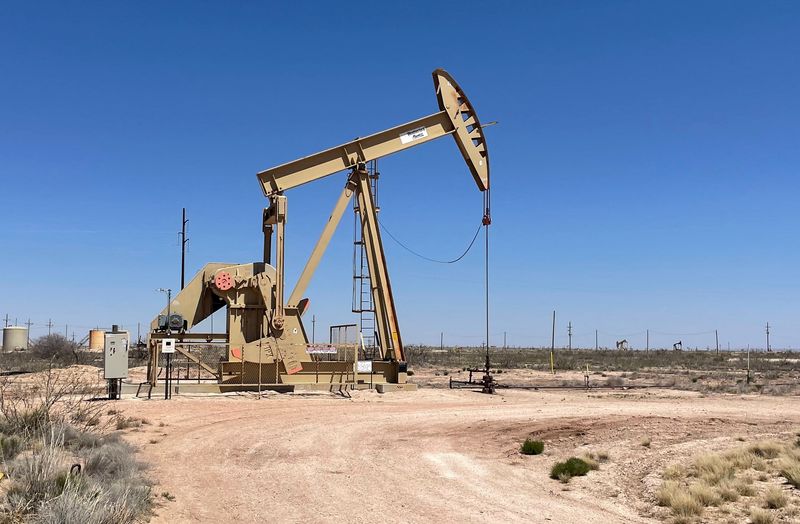By Shariq Khan
NEW YORK (Reuters) – Oil prices fell more than 2% on Friday as traders became less concerned about prolonged supply disruptions from a hurricane in the U.S. Gulf of Mexico, while China’s latest economic stimulus packages failed to make an impression on some oil traders.
U.S. West Texas Intermediate futures led the decline, settling at 70.35 per barrel, down 2.7%, or $1.98. Global benchmark futures fell 2.3%, or $1.76, to $73.87 a barrel.
Energy producers shut down more than 23% of oil production in the US Gulf of Mexico on Friday to brace for Hurricane Rafael. However, the latest forecasts on the trajectory and intensity have reduced the risks that Rafael poses to oil production.
“The threat of supply disruptions from Hurricane Rafael is easing as storms begin circling the center of the Gulf of Mexico over the next five days,” Alex Hodes, an analyst at brokerage firm StoneX, told clients in a note.
The storm, which left a trail of destruction in Cuba this week, had weakened to a Category 2 hurricane on Friday, according to the latest advisory from the US National Hurricane Center.
Meanwhile, the latest round of fiscal support from China’s oil importer disappointed oil investors. Chinese authorities have announced a package that will ease debt servicing pressures for local governments, but those measures do little to directly address demand, according to UBS analyst Giovanni Staunovo.
“I suspect some market participants were hoping for more stimulus from China,” he said. “That’s why the disappointment earlier today weighed on prices.”
Deflationary pressures on the Chinese economy have put heavy pressure on oil prices this year. Customs data for October shows a decline in the country’s imports year-on-year for the sixth month in a row.

Despite Friday’s losses, oil prices rose more than 1% week-on-week, drawing support from expectations of tougher sanctions on Iran and Venezuela by newly-elected US President Donald Trump, which could limit oil supplies to global markets.
The US Federal Reserve’s decision to cut interest rates by a quarter of a percentage point on Thursday could also help push oil prices up by more than 1% during the previous session.


